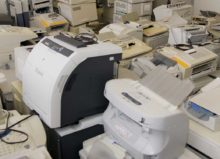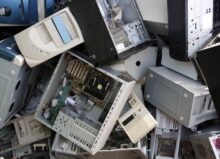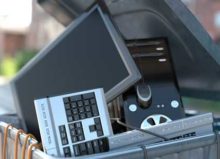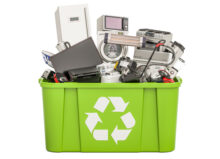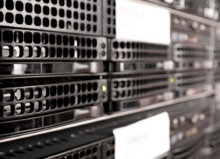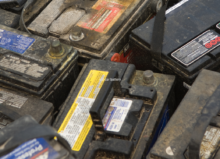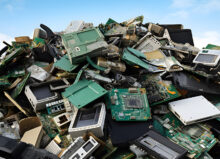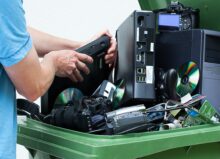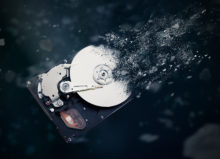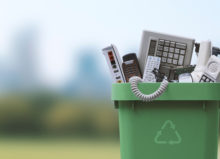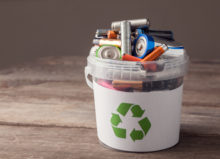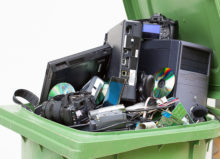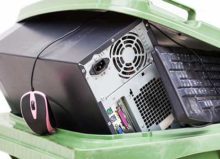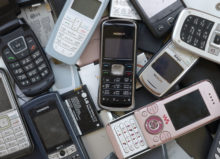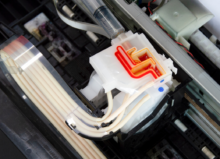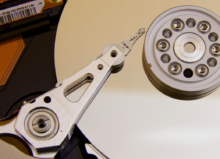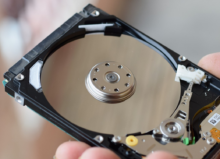The Laptop Recycling Process: A Step-by-Step Guide

Electronic waste (e-waste) isn’t a minor problem. According to a Statista dossier, the amount of electronic waste generated worldwide has continually increased since 2010. In fact, the most recent data from 2019 shows that 53.6 million metric tons of e-waste was generated in just one year. Although screens/monitors, and small IT equipment, like laptops, only comprise 22% of total waste generated, that’s still 6.968 million metric tons of waste in one year.
When laptops and other electronic devices are thrown into landfills, they leach toxic substances that not only cause water and air pollution, but also affect human health. If your laptop has stopped working, is running slower than normal, or you’re just looking to upgrade—opt to recycle your laptop instead of throwing it away. The process itself is very easy, free (for you), and safe.
Take a look below to learn more about the laptop recycling process.
Step 1: Sending Laptop to Electronic Recycling Center
Never attempt to recycle laptops on your own. If you want to properly recycle your laptop, you need to send it to a professional electronic recycling center. If your laptop’s battery is leaking, exposed to direct sunlight, or not stored property, it can explode. Additionally, hard drives need to be sanitized (destroyed) as they contain sensitive and personally identifiable information.
Step 2: Data Destruction
After you send your laptop to a recycling center, their experts will start the data destruction process. It’s important to acknowledge that it isn’t enough to simply remove a hard drive from the laptop in order to preserve sensitive and personal information. The physical hard drive itself must be destroyed to ensure that the aforementioned sensitive information cannot be recovered, even through sophisticated methods.
Step 3: Breaking Down Recyclable Components
After any leftover data has been destroyed, individual components are removed from the laptop, sorted, and shredded. As the name suggests, shredding involves breaking these individual components down into smaller pieces, which are then sorted/separated based on the type of materials that they contain. When components are shredded, they also go through a belt conveyor dust-collection system, which removes any lingering contaminants and debris from the components.
Step 4: Separating Shredded Components
There are two main methods that are used to separate shredded laptop components: magnetic-based and water-based.
Magnetic separation is used to separate steel and iron components while water separation is used to separate any glass from plastic components.
Once materials are sorted, the recycled materials can then be prepared for re-use or re-sale as necessary.
Recyclable Components of a Laptop
Many people don’t realize that most parts of a laptop can be recycled. Even if the hard drive cannot be reused (which may not be possible depending on its age), elements like the processor, the motherboard, the chassis, and more can all find a home in new equipment.
The same type of CPU chip that is in a laptop, for example, could be re-used for a new mobile phone or similar device. The plastic used to form the laptop’s case can also be melted down and re-purposed.
How Are Recycled Components Used?
Most often, metals like copper, silver, gold, and palladium are extracted from laptop components, like CPUs (central processing units), motherboards, hard drives, and optical drives, and then re-used to manufacture other products. Although electronic manufacturers have reduced the amount of precious metals in products, Statista reports that 35,274 pounds of copper was recovered from every one million smartphones in 2022. Beyond metal, plastics can also be recycled. Plastic materials, including ABS and ABS/PC blends can be found in CPUs and charging cords. Lastly, glass from the laptop’s monitor can be recycled and reused.
Or, laptops may be dismantled (and wiped, of course) and resold in a “Takeback” program. Most businesses in the United States are required, by law, to offer an electronics recycling program to help reduce the impact of e-waste.
Lastly, individual components can also be resold to other manufacturers who will then use them to make new products that will eventually be available to consumers.
Benefits of Recycling Old Laptops
By far, the biggest advantage of recycling old laptops is that it reduces the impact of e-waste. As previously mentioned, when electronics are sent to landfills, they will continue to sit there for many years. And, as those years go by, toxic substances including barium, lithium, mercury, lead, and cadmium, will leach from the laptop components. These substances pollute the air and nearby water sources which affects the health of local wildlife and people living near the landfill. Additionally, polluted water can be carried miles away into other communities, which extends the impact that the e-waste has on human health.
Another advantage of recycling laptops is that it allows for the safe disposal and destruction of sensitive data. Even if your laptop no longer functions normally, the hard drive will still contain information (bank statements, personal health information, Social Security numbers, etc.) that can be accessed by third parties. When you throw your laptop away, you’re increasing the risk of data theft. Laptop recycling, on the other hand, means that your hard drive will be wiped either through degaussing, shredding, or another data destruction method. That means that your data cannot be recreated or accessed in any way.
Lastly, some components from recycled laptops can be used to refurbish other laptops, which are then sold to individuals at discounted prices. So, in other words, your old laptop can add value to someone else’s life. Additionally, components that are not used to refurbish laptops can be broken down and sold to manufacturers to help them reduce their energy output.
Where to Find Laptop Recycling Services in Michigan
Do you have old laptops or electronic devices? Bring them to High Tech Recycling, or let us come to you. We offer free electronic recycling and data destruction services to individuals and businesses through the metro Detroit, MI, area. You can bring your laptops to us during normal business hours or schedule a pickup time through our website.
If you have any questions about our data destruction or laptop recycling processes, don’t hesitate to contact one of our specialists.

